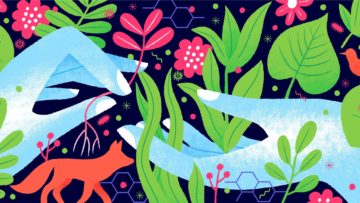C. Brandon Ogbunu in Quanta Magazine:
 Evolution is a complicated thing. Much of modern evolutionary biology seeks to reconcile the seeming randomness of the forces behind the process — how mutations occur, for example — with the fundamental principles that apply across the biosphere. Generations of biologists have hoped to comprehend evolution’s rhyme and reason enough to be able to predict how it happens.
Evolution is a complicated thing. Much of modern evolutionary biology seeks to reconcile the seeming randomness of the forces behind the process — how mutations occur, for example — with the fundamental principles that apply across the biosphere. Generations of biologists have hoped to comprehend evolution’s rhyme and reason enough to be able to predict how it happens.
But while prediction remains a worthy goal, scientists are now focusing on its much more ambitious cousin: control over how it happens.
This may sound like science fiction, but the greatest examples of the endeavor live in our past. Consider the process of artificial selection, a term coined by Charles Darwin: Thousands of years ago, humans began to identify plants and animals with preferable traits and selectively breed them, which amplified these traits in their offspring. This approach gave us agriculture, one of the most transformative cultural inventions in human history. Later, artificial selection in animals and plants helped us understand genetics, and how genes evolve in populations. But as effective as it’s been, artificial selection is still fairly limited.
More here.
